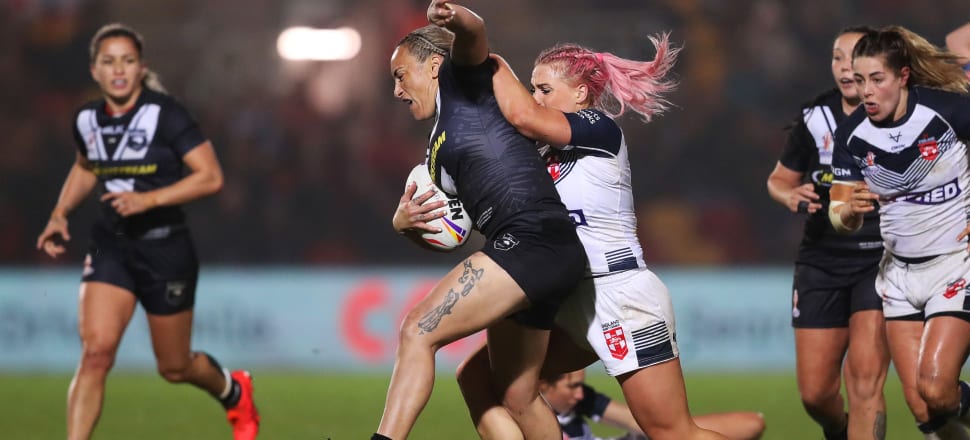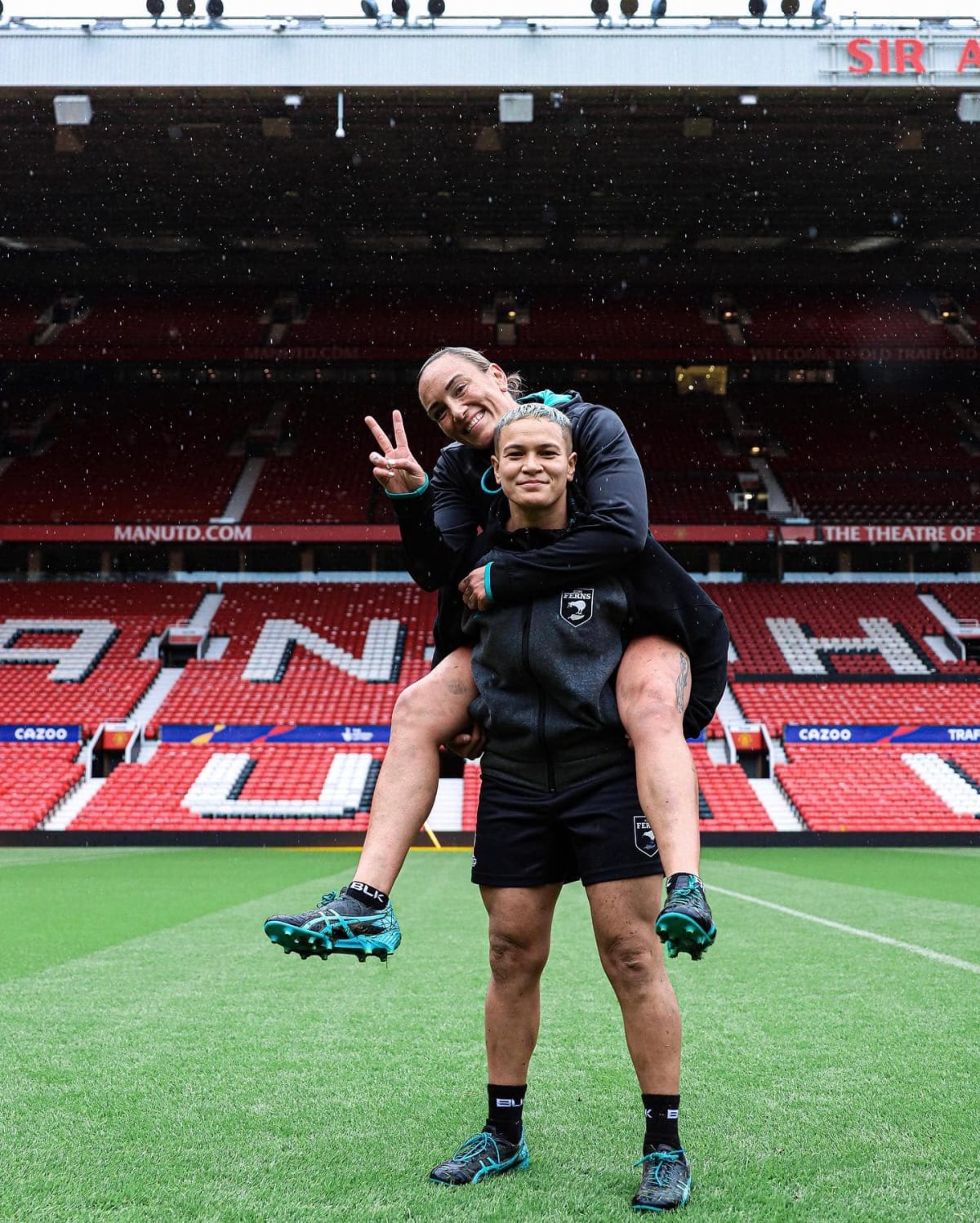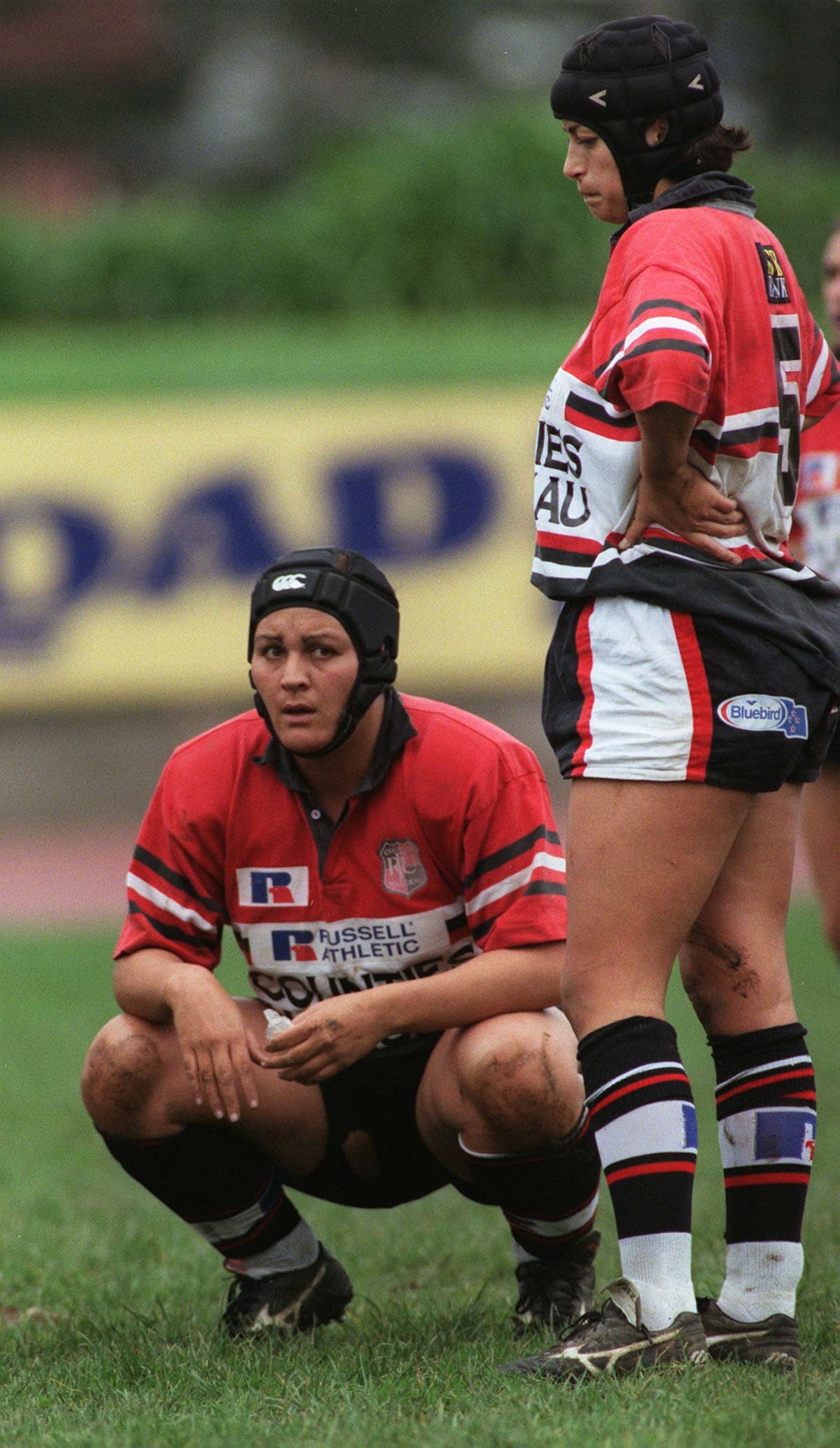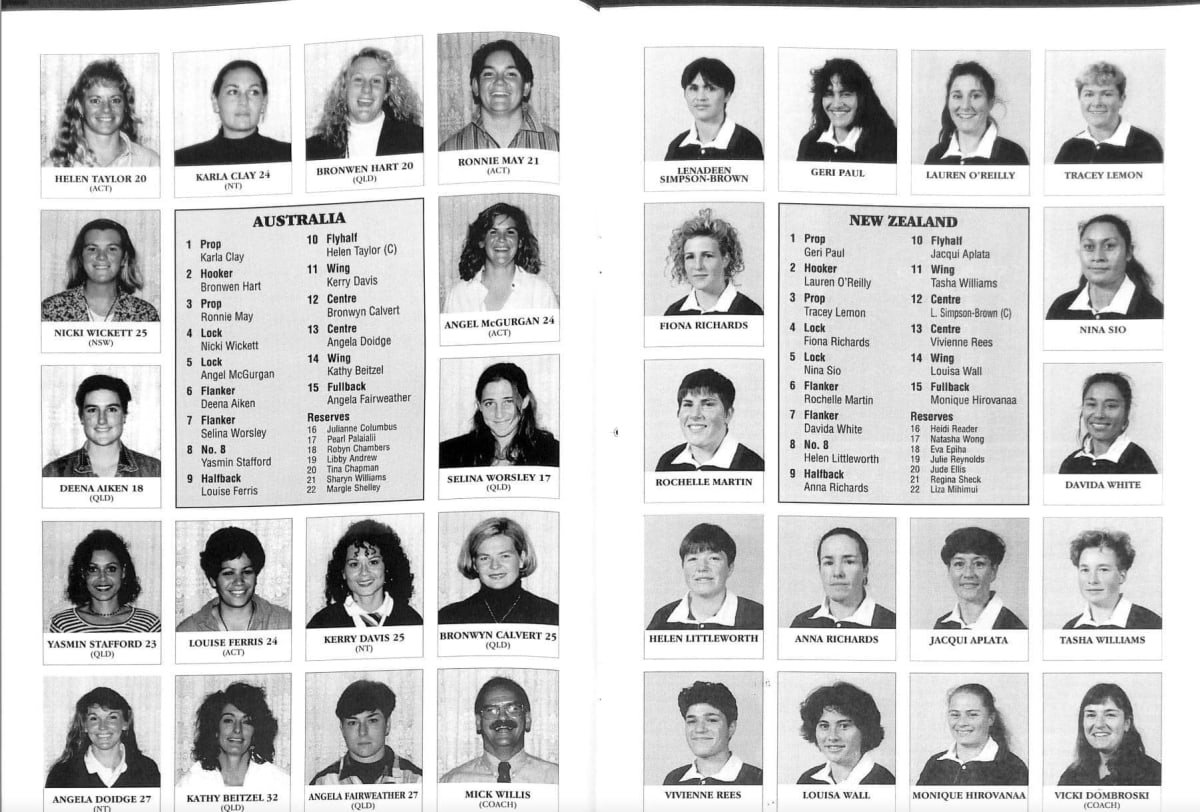
Can the Kiwi Ferns replicate the Black Ferns' World Cup victory this weekend? Trailblazing league and rugby player Karla Matua reckons they can, with the help of her Manurewa Marlins stars, she tells Suzanne McFadden.
In the space of just eight days, New Zealand could have two World Cup women’s champions – first the Black Ferns, then the Kiwi Ferns.
And somewhere in Manurewa before dawn on Sunday, Karla Matua - who has close ties to both teams - will be screaming the house down if the unique double becomes a reality in the ‘Theatre of Dreams’, Old Trafford.
Matua is the proud chair of the Manurewa Marlins Rugby League Club, which has two players in tomorrow morning’s Rugby League World Cup grand final - Krystal Rota captaining the Kiwi Ferns, and Christyl Stowers on the interchange bench.
(A third Marlin, Kararaina Wira-Kohu, injured her calf just as the team were about to leave for England and had to stay at home).

As the excited Kiwi Ferns prepare for their encounter with Australia’s Jillaroos, Matua knows just what the team is going through, having played in a rugby league World Cup final – for New Zealand Māori against the Kiwi Ferns back in 2003.
But she also has a special link to the Black Ferns. Whangārei-born and a promising netballer, Matua (nee Clay) ended up playing rugby union when she moved to Darwin, and represented Australia in their first rugby test against New Zealand in 1994.
In fact, playing at prop, Matua will always be known as Wallaroo #1 – the first woman to be capped as an Australian rugby player. (She remembers being told off for singing God Defend New Zealand before the game).
The connections don’t end there, either. Matua’s husband, Rusty, is a former Kiwi Ferns coach who’s been at this World Cup coaching the Cook Island Moanas. Their twin nieces, Kere and Tere Matua, played in the side and both scored points in the Moanas’ historic win over France at the tournament.
Rusty’s back home now, and the couple will be up early on Sunday - for the 2.15am kick-off - to cheer on the Kiwi Ferns, especially their Marlins.
“When you watch them all season, and see what they’ve been going through on a day-to-day basis, you can’t be anything but proud,” Matua says. “All the effort and sacrifice they’ve made to get to this stage.
“You’ve got Krystal Rota, whose daughter is unwell, and Christyl Stowers who has rheumatoid arthritis.”
A year ago, Rota wasn’t going to play at this World Cup. Her eight-year-old daughter, Nikayla, has a rare kidney disorder (she received a transplanted kidney from her father when she was a year old) and Rota has been especially vigilant of her daughter’s health during the Covid pandemic.
But now Nikayla will be in the stands at Old Trafford, the home of the Manchester United football team, to watch her mum lead the Kiwi Ferns into another grand final.
Krystal Rota hugs daughter Nikayla at the Rugby League World Cup in England.
Matua says both Rota and Stowers have been incredible role models in the community.
“Krystal is born and bred Manurewa, she’s always lived here and went through school here,” says Matua. “When you pop out at the other end as a product of your community, it’s the stuff that dreams are made of. I can take her anywhere in our community and she understands the girls because she’s lived that life.”
When she looks across the World Cup, Matua counts 15 former or current Marlins who’ve played in either the men’s and women’s championships over the past few weeks. There are Manurewa players in the New Zealand, Samoa, Tonga, Fiji, Cook Islands and French teams.
“I’m really proud of our women but behind them, supporting them, are our men. It’s great that our kids can see these women up there and see a potential pathway for themselves,” Matua says.
She’s confident the Kiwi Ferns can flip the result of their last clash with the Jillaroos in pool play, where they lost 10-8. They just need to bring their “A game”.
“They showed in their semifinal [a 20-18 victory over England) that skill-wise, physically and mentally they’ve got it. They can match the Jillaroos,” she says.
“They just have to keep their errors down and absorb the pressure of a World Cup grand final game. But I think they’ve got it.”
Kiwi Ferns coach Ricky Henry is on the same page. He reckons the Ferns will have gained an advantage from their tough semifinal, while the Australians (who’ve only conceded eight points – all to New Zealand - at this tournament) had an easy ride in their 82-0 semis victory over Papua New Guinea.
Henry’s side gained a lot of confidence from their narrow loss to the Jillaroos in pool play, and he singled out two areas they’ve been working to improve on.
“The main things for us were our execution in a lot of our attack play. We’ve created enough opportunities – we just haven’t been able to get to polish on completing them,” Henry says.
“From a defensive point of view, a lot of those early carries out of our own half, Australia really pinned us in and made us work to get out of our own end.
“We’re going to have to be really good this week to get a win over Australia.”

Matua says Rota is a “beautiful leader”, but she’s been impressed with the number of Kiwi Ferns who’ve stepped up to help lead at this World Cup, especially those who’ve played across the Tasman in the NRLW.
“Ten years ago, you would have become a Kiwi Fern straight from your club; that was the pathway. But it’s expanded and the girls are becoming better equipped from being in a professional environment,” she says.
“You have 20-year-old Mya Hill-Moana, who’s a born leader, but traditionally she would have had to wait her time.
“There’s nothing more powerful than bringing these women together on a journey – calling on their superpowers in their collective, united waka. Their confidence has grown every day they’re together.”
But Matua knows the Kiwi Ferns’ success on this world stage will come at a cost to community rugby league back at home.
“As the profile of our women is lifted, players are already been approached to play in Australia in the NRLW. It’s inevitable we’re going to lose quality players from the New Zealand rugby league system,” she says.
“That won’t happen to rugby. But for league, our girls will have to go offshore which means losing our leaders and role models for our girls. It’s been happening the last couple of years, but after this league World Cup, even more will be siphoned off.
“Girls rugby league in Auckland is amazing. We are a huge girls’ club, right through the age groups. The wonderful thing is they always recognise their clubs, they never disconnect from their roots.”

Matua has witnessed first-hand how far rugby league has come in the past three decades. After playing in the 2003 World Cup final – on the receiving end of a 58-0 drubbing from the Kiwi Ferns – she moved into helping run the women’s game in New Zealand. She worked with Christine Panapa, who was the president of NZ Women’s Rugby League, fighting to become an affiliate of NZ Rugby League.
“For 10 to 15 years, the Kiwi Ferns team was driven by a group of women,” she says. “A group of volunteers with no money, and no resources from a national body. We couldn’t even get a set of jerseys for them; we had to fundraise for them to play overseas, through raffle tickets and art sales.
“But we kept women’s rugby league afloat. The progression to today has been amazing.”
Rugby still holds a special place in Matua’s heart. She played for both the Auckland Storm and the Counties Manukau Heat, and was with the Manurewa Rugby Club for 15 years.
“I’d play rugby on Saturday and league on Sunday. I was a hybrid,” she laughs.
She’s especially passionate about Māori rugby – sitting on the board of Te Hiku o Te Ika Māori Rugby Council, covering the northern region.
She went to every Black Ferns game during the World Cup in New Zealand: “They did us so proud." The Kiwi Ferns had a 'watch party' in their team room last Saturday to see the Black Ferns beat England to successfully defend their World Cup title.
“The Kiwi Ferns will absolutely take strength from the Black Ferns’ victory, and I think Australia will be aware of that influence. But they will be feeding of the success of their men [who play Samoa in the grand final Sunday morning]," Matua says.
“Two world champion teams in a week. Wouldn’t that be unbelievable? Especially for female sport in traditionally male codes.”
* The Women’s Rugby League World Cup grand final between New Zealand vs Australia kicks off at 2.15am on Sunday, live on Spark Sport. The men's final, Australia vs Samoa, starts at 5am.







